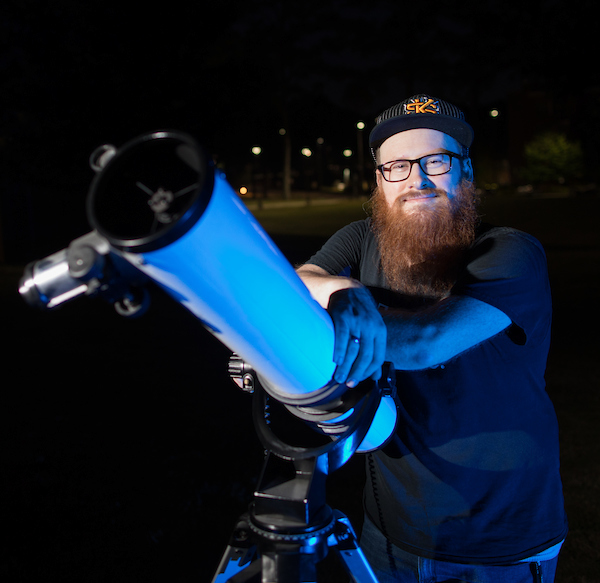Physics
Learn More About Physics
Admission Requirements
None.
This program does not have specific admission requirements. Only admission to Kennesaw State University is required to declare this major.
General Education Core IMPACTS Curriculum Recommendations for this Major
M: Students should take MATH 1113 or higher.
T: Students should take MATH 1179 or higher.
T: Select two course pairs from the following: Students must choose from CHEM 1211/L, CHEM 1212/L, BIOL 1107/L, or BIOL 1108/L.
Tracks Available
- General Physics Track: Physics is the study of matter, motion, force, and energy across space and time. Physicists develop theories and perform experiments to understand the physical world including everything from the elementary constituents of a proton, electric and magnetic phenomena, lasers, high tech materials, and black holes. The general physics concentration will provide students with a broad conceptual understanding of physical phenomena and technical problem-solving skills. Students who earn bachelor’s degrees in physics are well prepared to pursue advanced graduate degrees in physics or related areas of study. It also prepares students for 21st-century careers in government and industry as professional physicists.
- Electrical Engineering Track: This concentration in electrical engineering combines the study of physics with electrical engineering by further broadening knowledge and skills. In addition, a degree with an electrical engineering concentration will increase the marketability of the physics student.
- Mechanical Engineering Track: This concentration in mechanical engineering combines the study of physics with mechanical engineering. This curriculum design helps to further broaden the students’ analytical skills. In addition, a degree with a mechanical engineering concentration will increase the marketability of the physics student.
Related Minors or Certificates Available
- Physics Minor
Sample Classes
-
PHYS 3260: Mathematical Physics
This course students will review mathematical techniques that are often used in upper-level physics courses. Students will learn to apply linear algebra, differential equations, vector calculus, Fourier series, Fourier transforms, Bessel functions, Legendre polynomials, and complex analysis to solve problems in physics.
-
PHYS 3710: Modern PhysicsThe topics covered in this course constitute the most fundamental background in modern physics. The main objective of this course is to provide the student with a basic understanding of the physical laws and phenomena that constitute the framework leading to quantum mechanics. Students will strengthen their knowledge of special relativity and explore aspects of the quantum theory of wave/particle duality and the probabilistic interpretation. Students will learn the Schrödinger’s equation, its solutions for simple potentials, and properties of the one-electron atom. Students will also study applications of quantum principles to atomic, molecular and nuclear structures.
-
PHYS 4210: Quantum Mechanics I
This course presents a systematic development of quantum mechanical laws. Students will be introduced to Dirac’s notation and will learn about the theory of angular momentum quantization and will use the operator formalism to solve the Schrödinger’s equation in 3-dim for a particle in a central force field, and the simple harmonic oscillator. In addition, students will learn concepts of time-independent and time-dependent perturbation theory and scattering theory.
-
PHYS 4230: Thermal Physics
This course is a study of the principles of thermal equilibrium, physical statistics, irreversible processes, and the approach to equilibrium. Students will learn how to apply the statistical nature of thermodynamics using Boltzmann, Bose-Einstein, and Fermi-Dirac statistics












